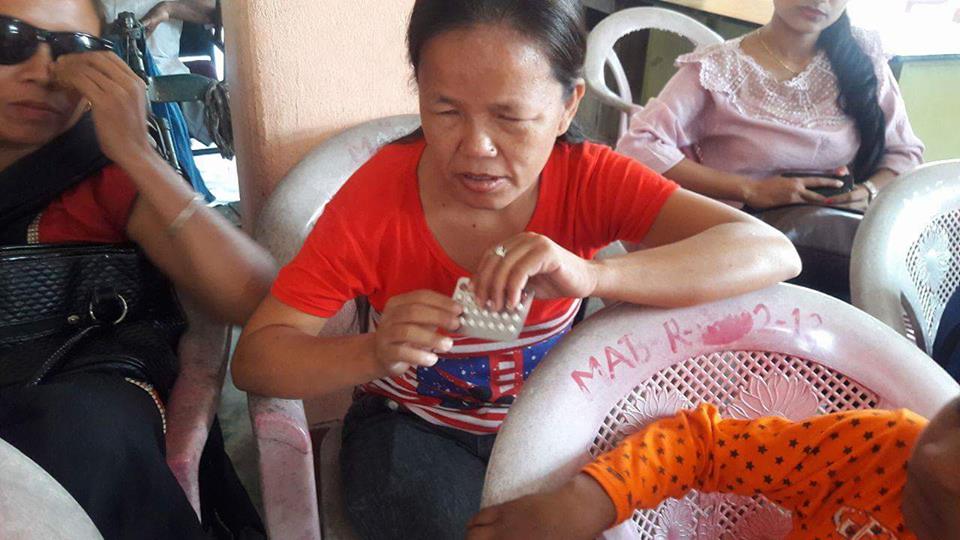Ensuring disability-friendly Sexual and Reproductive Health services
07 Jun 2017

It is estimated that 1 in every 10 persons in the world are living with disability (UNFPA/WHO, Promoting sexual and reproductive health for persons with disabilities, 2009).
Young people with disabilities have the same Sexual and Reproductive Health (SRH) needs as other young people. Marie Stopes Nepal conducted a study on SRH needs among Young Persons with Disability (YPWD) in 6 districts of Nepal. The study indicated that YPWD do not receive even the basic information, leading to lower service uptake. In Nepal, the challenges facing YPWD are aggravated by lack of education, low acceptance by the society, and negative attitudes of service providers.
 Marie Stopes Nepal strongly believes in ensuring its service centers are disability-friendly. Therefore, Marie Stopes Nepal strives to ensure positive attitude among its service providers towards persons and disabilities and providing non-judgmental SRH services to them. In this regard, Marie Stopes Nepal organized disability sensitization programs for its service providers and volunteers. The main objective of these programs were to familiarize all staff and volunteers to different forms of disabilities and the rights of persons with disabilities to access information and services on SRH.
Marie Stopes Nepal strongly believes in ensuring its service centers are disability-friendly. Therefore, Marie Stopes Nepal strives to ensure positive attitude among its service providers towards persons and disabilities and providing non-judgmental SRH services to them. In this regard, Marie Stopes Nepal organized disability sensitization programs for its service providers and volunteers. The main objective of these programs were to familiarize all staff and volunteers to different forms of disabilities and the rights of persons with disabilities to access information and services on SRH.
“I was not comfortable speaking with YPWDs about their SRHR needs. This is because I do not know their language or gesture to explain them how contraceptives work.” – One of our pop-up volunteers.
“When we initiated the study on SRH needs of YPWD, we realized that we do not have proper signs to explain about abortion to deaf persons. It was really difficult for us to make them correctly understand the SRH terminologies.” – Research team.
Following these sensitization programs, Marie Stopes Nepal also began coordinating with organizations working in the area of disability in four Youth project districts: Kaski, Parsa, Morang and Kathmandu. Drawing on Marie Stopes Nepal’s commitment to inclusion, this youth project appointed YPWDs as pop-up volunteers to utilize a peer-to-peer approach and reach the maximum possible number of YPWDs with SRH information and services.
Dan Bahadur, 19 and with a physical disability, has been educating fellow youth in his city Kathmandu on SRHR.
There are 3 million people with disability in Nepal today, says Bahadur, and nearly half of them young. Not long ago, they were socially ostracized, he says: “People looked down upon the disabled. They were regarded as people who brought bad luck to others.” Today, however, there are special facilities for persons with disability, including scholarships and quota in educational institutions and government jobs.
Yet, when it comes to sexual health, these persons and especially the youth are normally forgotten. Bahadur wants to change that, but so far, the goal has remained a big challenge. “People laugh at me when I talk of SRHR. Some think it is weird and even ask me, “Do persons with disability have normal sexual needs?”
There are, however, a lot of people who give him support. Many of them are persons with disability themselves, including players from the national Wheelchair Basketball Association – an institution promoting and campaigning for sportspersons with disability. Bahadur has met several players, made them aware of their SRHR rights, including contraception, abortion, counseling on sexual health and hygiene.
Nilima Raut, Youth project manager explains, “The main slogan of the UN’s Sustainable Development Goals itself is ‘Leaving No One Behind’ and in reaching out to YPWDs, we are trying to achieve that.”
Marie Stopes Nepal is an implementing partner of Marie Stopes International. It provides a wide range of services to meet the sexual and reproductive health right needs of the men, women and young people of Nepal. We are increasing awareness and understanding of SRHR balanced with increasing access to affordable quality services to prevent unwanted births. It also uses an advocacy-based approach to support people in exercising their fundamental SRH rights, particularly targeting under-served, marginalized and hard to reach populations.